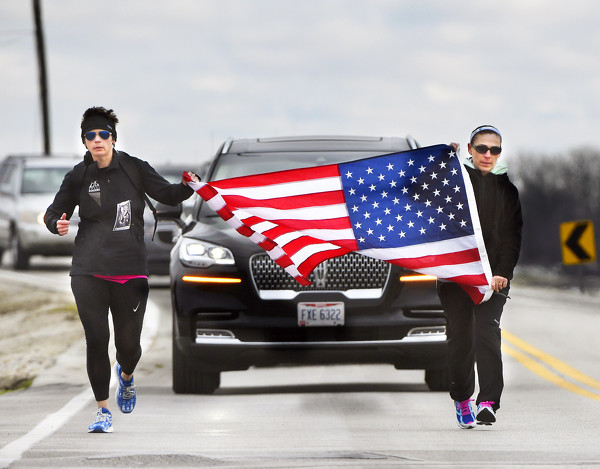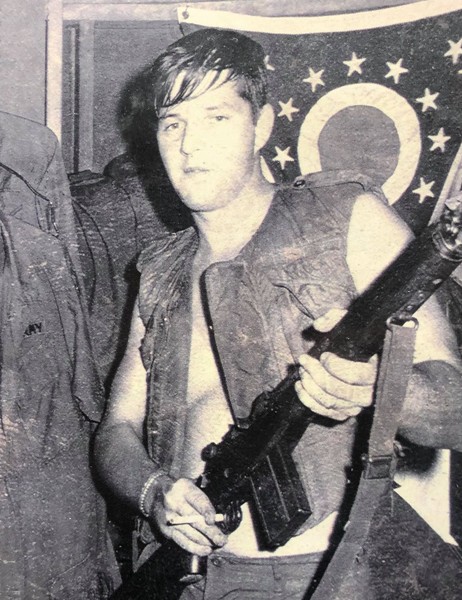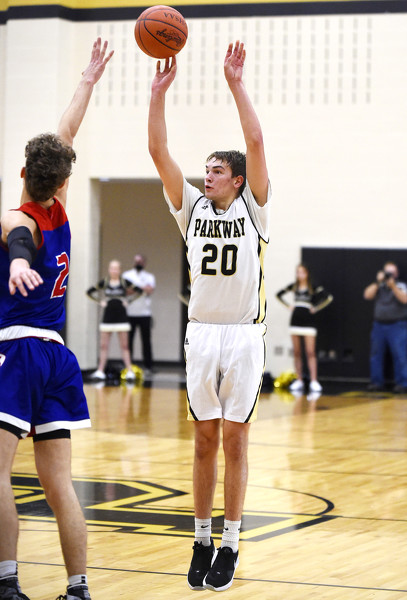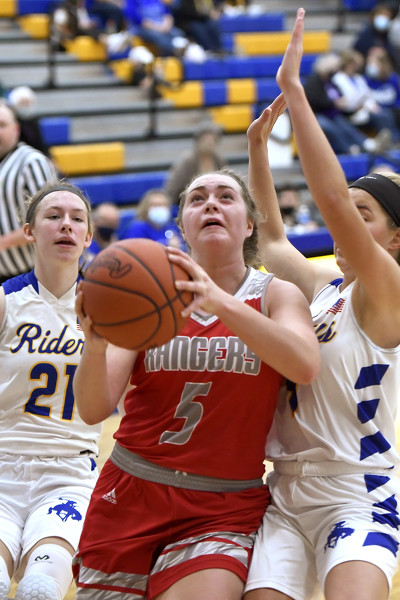Teachers have had a lot on their plates in 2020, adjusting their approach and classrooms to address a pandemic.
However, some area teachers are turning the pandemic into a teachable moment.
At Minster Local Schools, high school biology and anatomy teacher Marianne Bruns and principal Austin Kaylor have created a video series called "Ask Mrs. Bruns," in which Bruns tackles questions about COVID-19 from high school students.
Kaylor said the idea came about while he was sitting in on one of Bruns's classes for teacher evaluations. Pfizer had recently announced the success rate of its COVID-19 vaccine, so Bruns spent the first few minutes of class updating her students.
"Marianne is energetic, and people trust her," Kaylor said. "(Students) already were talking about mRNA in class, and I realized this could be good not just for the kids but for the community," Kaylor said.
Students in grades 7-12 received a questionnaire on which they could submit questions for Bruns to answer. The first video, which appeared on the district's social media on Thursday, covered how the proposed COVID-19 vaccine would work. Link to video on Facebook.
"I've had a lot of questions about the COVID-19 virus and the vaccine and how it works," Bruns says in the video as she stands in front of a whiteboard. "So I thought I would explain to you guys how this vaccine is supposed to work just like I explained it to my students."
The video is short, clocking in at four and a half minutes. Bruns uses drawings to help explain how the vaccine is made and uses real-world examples that students and community members can understand without all the scientific jargon.
"I tell the students it's kind of like if you're going to play another team in sports," she explains in the video. "Before you play them, you watch a film of how that team plays, that way when you actually get on the court with them, you know what they're going to do. So getting this immunization is kind of like watching the 'film' of the COVID-19 virus. Your body knows what to do."
Bruns's background is in medical science, and she previously worked as a medical laboratory scientist at Mercer Health. She said she wanted other science professionals to review her work, so she enlisted a team of people to help.
Dr. Carol Quinter, a Minster resident with a Ph.D. in infectious diseases and director of laboratory clinical services at Alimetrix in Lima; Dr. Jim Schwieterman, Maria Stein native and a practitioner at Maria Stein Family Practice; and Jill Sudhoff, chemistry and physics teacher at the high school, will review and confirm the information she presents in the videos.
"I don't have an agenda," Bruns said. "My agenda is to get information to people that's correct."
"This is not meant to be political," Kaylor said. "It's meant to educate, because that's what we're here to do."
For Tri Star Career Compact med prep instructor Brenda Speck, the pandemic has been a real-life teaching moment for her students.
While topics such as proper hygiene and personal protective equipment are standard in the two-year college tech program, Speck said the pandemic has demonstrated their importance.
"We teach about PPE every year, but moreso this year about how to wear it correctly, how to properly dispose of it," Speck said. "It's always been in our curriculum, but we're doing more with it now."
Speck said she and fellow med prep instructor Annette Albers have spent additional time discussing how viruses are transmitted, the importance of hand washing and how students can educate their family members.
"They almost tutor their classmates because they have the knowledge," Speck said.
A new emphasis also was put on mask wearing.
"We've stressed the importance of mask wearing because they can't stay 6 feet away," when treating patients, she noted.
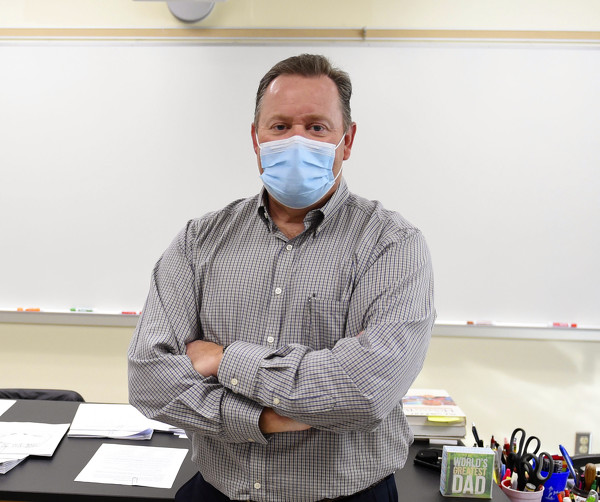
Randy Wright, a Coldwater High School biology teacher, teaches the medical and biological side of COVID-19 to his students.
Randy Wright, a Coldwater High School biology teacher, said with some kids quarantining or isolating because of the virus, COVID-19 comes up quite a bit.
He said his lesson plan at the start of this school year began with living and non-living things, so he decided to integrate information on COVID-19 into the lesson.
"A virus is kind of in between," he said. "A lot of kids know some things about it, but don't know the history of it. There's a lot of misinformation about it."
Wright said he discussed how the virus started, where it came from, how it relates to other viruses and what information was available at the time, as well as prevention methods.
"I wanted to teach the medical, biological side of the disease," he said. "There's so much misinformation and political emphasis … and it's a scientific, medical issue not a political issue."
Wright spent a couple of days on the topic to keep students educated and up-to-date, not to be graded. While it may have been informal, Wright believes it was important that his students know the basics.
"My strongest feeling about it is that they need to know the scientific news, not just what's on the news or what their parents say," Wright continued. "Just the science, the medical (aspect) of what it is. They should know."
COVID-19 cases, deaths:
Local statistics have not been updated since last week.
| U.S. cases | 14,800,000 |
| U.S. deaths | 282,000 |
| Ohio cases | 475,024 |
| Ohio deaths | 6,959 |
| Mercer County cases | 2,819 |
| Mercer County deaths | 52 |
| Auglaize County cases | 2,187 |
| Auglaize County deaths | 33 |
